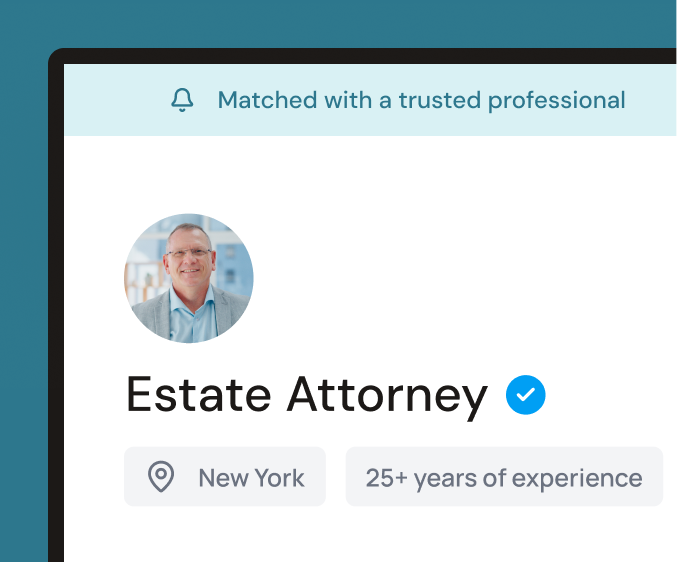Key Takeaways
- A power of attorney (POA) allows someone to make decisions on behalf of a loved one.
- When a family member enters hospice, having the right POA in place is crucial.
- Medical vs. financial POA—understand the difference.
- Timing and documentation are key to avoiding delays or disputes.
{{blog-cta-legal}}
When a loved one enters hospice care, families often find themselves navigating an emotionally overwhelming time. Beyond the grief and uncertainty, there are complex decisions to be made—medical, financial, and logistical. One legal tool that can ease this burden is a power of attorney (POA).
A POA allows someone to act on behalf of your loved one in specific matters, and having one in place is essential during end-of-life care. This guide will explain what POA is, why it matters in hospice, and how it can help families manage difficult decisions with clarity and compassion.
What Is a Power of Attorney (POA)?
A power of attorney is a legal document that grants an individual—called the “agent” or “attorney-in-fact”—the authority to make decisions on behalf of someone else (the “principal”). The purpose is to ensure that important decisions can be made even if the principal becomes incapacitated.
There are different types of POA:
- Medical POA (or healthcare proxy): Allows the agent to make healthcare decisions.
- Financial POA: Grants authority to handle financial matters, such as paying bills, managing assets, or filing taxes.
- Durable POA: Stays in effect if the principal becomes mentally incapacitated, which is especially important in hospice situations.
To be valid, a POA must be legally documented, signed, and usually notarized or witnessed, depending on state laws.
Why POA Matters in Hospice Care
When someone is in hospice, they may no longer be fully capable of making informed decisions due to physical decline, pain, or cognitive impairment. A POA ensures that someone trusted can make those decisions quickly and confidently.
Common hospice-related decisions include:
- Approving or declining medical treatments like feeding tubes or medications.
- Signing a Do Not Resuscitate (DNR) order.
- Managing bank accounts to pay for final expenses or settle debts.
- Coordinating care logistics, such as home health aides or hospice transfers.
Having a POA in place provides emotional relief to families because there’s a clear legal pathway for action, avoiding disputes or guesswork during already painful times.
When and How to Set Up POA
The best time to set up a power of attorney is before hospice care begins—ideally when your loved one is still of sound mind. Once someone becomes mentally incapacitated, they can no longer legally grant POA.
Steps to set up a POA:
- Discuss your loved one’s wishes and who they trust to make decisions.
- Choose the type(s) of POA needed—medical, financial, or both.
- Download or obtain state-specific POA forms (available through legal aid offices or online).
- Complete the forms and review them with an attorney, if possible.
- Sign and notarize the documents. Some states require witnesses as well.
- Distribute copies to all relevant parties: agents, family members, doctors, and financial institutions.
Involvement of legal and medical professionals can help ensure the document is clear, compliant, and readily accepted.
Medical vs. Financial POA in End-of-Life Care
Medical POA allows the agent to make healthcare decisions, such as consenting to or refusing treatments, arranging palliative care, or signing DNR orders.
Financial POA lets the agent access bank accounts, pay bills, manage insurance, and handle property matters.
Real-world examples:
- A daughter uses medical POA to agree with doctors to begin comfort care only.
- A son uses financial POA to access a bank account and pay the final utility bills.
One person can hold both roles, or responsibilities can be divided between trusted individuals.
What Happens If There’s No POA?
Without a POA in place, families may face legal and emotional complications. Decision-making often defaults to next of kin, which can vary by state and may not align with the patient’s wishes.
Possible issues include:
- Delays in care while courts appoint a guardian.
- Family disputes over what the patient would have wanted.
- Inability to access funds needed for immediate expenses.
In some cases, families must petition the court to establish guardianship—a time-consuming and expensive process during an already difficult time.
Tips for Discussing POA with a Loved One
It’s natural to feel uncomfortable raising legal issues during declining health, but early conversations can prevent chaos later.
Approach the conversation with sensitivity:
- Choose a quiet, private time.
- Emphasize respect for their wishes and autonomy.
- Frame it as a loving step to reduce future stress for everyone.
Include other family members when appropriate to ensure transparency and support.
{{blog-cta-legal}}
FAQs
Can a hospice patient still sign a POA?
Yes, if they are still mentally competent. Once capacity is lost, it’s too late.
What’s the difference between a living will and a medical POA?
A living will outlines end-of-life care preferences in writing; a medical POA appoints someone to make those decisions if the patient can't.
Can a POA be changed during hospice?
Yes, as long as the patient is still mentally competent.
What if there are disagreements among family?
The POA agent has legal authority. While family input can be valuable, the agent’s decision stands unless contested in court.
Is POA valid after death?
No. All POA authority ends upon the principal’s death. At that point, the estate is managed by an executor or through probate.
Be Prepared, Empowered, and Compassionate
Having a hospice power of attorney in place gives families clarity and peace of mind during one of life’s most difficult transitions. It ensures that a loved one’s final wishes are honored with dignity and reduces the likelihood of legal or emotional conflict.
Take action early. Talk with your loved ones, consult legal professionals, and make sure the proper documentation is in place.
Helpful resources:
Empower yourself to support your loved one with compassion and preparedness. Elayne can help.












































